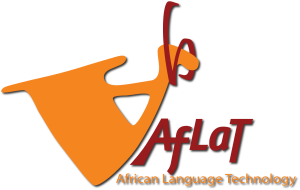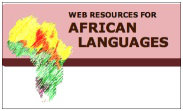Verbal extension sequencing: An examination from a computational perspective
| Title | Verbal extension sequencing: An examination from a computational perspective |
| Publication Type | Conference Paper |
| Year of Publication | 2007 |
| Authors | Anderson, Winston, and Kotzé Albert E. |
| Booktitle | 14th International Conference of the African Language Association of Southern Africa |
| Location | Nelson Mandela Metropolitan University, Port Elizabeth, Eastern Cape Province, South Africa |
| Abstract | Lexical transducers utilise a two-level finite-state network to simultaneously code morphological analysis and morphological generation rewrite rules. Multiple extensions following the verb root can be morphologically analysed as a closed morpheme class using different computational techniques. Analysis of a multiple extension sequence is achieved by trivial analysis, based on any combination of the closed class members, but this produces unnecessary over-generation of lexical items, many of which may not occur in a lexicon. Limiting the extension combinations in an attempt to represent examples that may actually exist in terms of both the possible number of extensions in a sequence and the relative ordering of the extensions, leads to a radical reduction in the generation of lexical items while the ability to analyse adequately is maintained. The presenters highlight details of their findings as well as the testing of possible extension sequences and morphophonemic alternations of extensions for Northern Sotho, garnered from literature research, lexicographic investigation and the computational morphological analysis of texts. |
- Login to post comments
- Google Scholar


